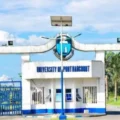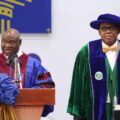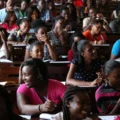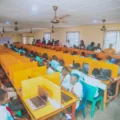Strike: Universities in the country are closed by SSANU and NASU
In accordance with the indefinite strike declared by the Senior Staff Association of Nigerian Universities and the Joint Action Committee of the non-academic staff union of educational and associated institutions, federal universities across the country closed on Monday.
SSANU and NASU pledged on Sunday evening to cease all university operations nationwide on Monday unless the Federal Government reimbursed the withheld pay for the four months.
The deadline for the Federal Government’s withheld salary expired at midnight on Sunday, according to a statement that Peters Adeyemi, the general secretary of NASU, and Mohammed Ibrahim, the national president of SSANU, signed and provided to The Punch on Sunday.
Among other things, the unions are calling for the implementation of the 2009 agreements with the government, better compensation and earned allowances, and the payment of the four months’ worth of delayed earnings.
Exam Scholars 2025 JAMB CBT App Launched
Admission: Uniport 2024/2025 First Batch Officially Out
When four university-based unions went on a protracted strike in 2022, the Federal Government, acting through the Ministry of Labor and Employment, invoked the “No Work, No Pay” policy.
President Bola Tinubu ordered the payment of four of the academic staff’s eight months’ worth of unpaid salary last October. In February, it was ultimately paid.
Concerns about the fate of the non-teaching staff were raised by the directive’s silence, which the unions characterized as selective.
In response to the announcement of an indefinite strike, the Federal Ministry of Education contacted the union leaders of university employees on Monday.
Ibrahim told our correspondent in Abuja on Monday that he had received a request for a meeting from the ministry.
Ibrahim told The Punch, “Well, since there is no official communication to that effect, I will say unofficial (meeting).”
“The Minister of State for Education called and said that the incoming minister had called to request a meeting in Abuja today, but that this was not possible because I was not available.
“The majority of us are not based in Abuja and all of that, as you are aware.”
Ibrahim said the Federal Ministry of Education probably requested a meeting because of the compliance shown in universities on Monday.
The University of Lagos was on vacation on Monday, so there wasn’t much action there.
Our correspondent’s monitoring exercise showed that SSANU and NASU members followed the strike order even though the University of Lagos was on vacation.
Mr. KT Fashola, the branch chairman of SSANU at Obafemi Awolowo University in Ile Ife, told our reporter that because of the previously planned events on Monday, there was about 55% compliance in the school.
Given that Monday is the first day and that there were already many planned activities that the school was unable to cancel, our members did comply to a degree of roughly 55%. Compliance is present.
Mr. Felix Adunbi, Chairman, SSANU, Federal University Technology, Akure, clarified that the organization convened its congress by the national directive and wholeheartedly agreed with that stance.
“Until the Federal Government takes the necessary action, our members have been told to return home.
“SSANU agreed to its congress on Monday morning to convey the national message, despite NASU’s directive for its members to remain at home since late Sunday night.
Adunbi urged the government to behave honorably, saying, “After that, everyone went back to their respective homes, and all administrative duties have been suspended until further notice.”
“The President authorized the required funds last year, and ASUU was subsequently paid,” he continued.
“We have planned several demonstrations in response to this problem. We are still baffled by the Ministry of Finance’s decision to withhold these monies, nevertheless.
“We beg the government to keep its promise. Why is there a delay if the President has given his approval? Our monies must be released as soon as possible by the Ministry of Finance, which is in charge of making these payments.
Following the strike, Monday’s activities at the University of Benin were interrupted.
The union leadership announced at a joint congress at the university’s sports complex on the Ugbowo campus that a monitoring committee had been established to make sure those impacted were complying.
Students were not allowed to use the health center, sports complex, or library.
Private security companies hired by the administration were observed operating at the school gate.
“The President said they should give us 50 percent of what they owe us, which is two months, so we gladly left and happily told our people that we were expecting two months’ salary and let us start from somewhere,” said Anthony Igbinosa, who was speaking at the meeting as the chairman of the UNIBEN branch of NASU.
However, we are informed that the Minister of Finance is sitting on the President’s directive from July 18 until the deadline is more than three months from now. Will an appointee be waiting for the president’s directive, though, if he is sincere?
“We have decided that we should begin, and there is a monitoring team that will go around, and we will make sure that there is total compliance in our university,” stated Broderick Osewa, his SSANU colleague.
After the statewide strike, both organizations closed the Federal University Lokoja in Kogi State.
The university’s campus was abandoned on Monday, paralyzing activities there.
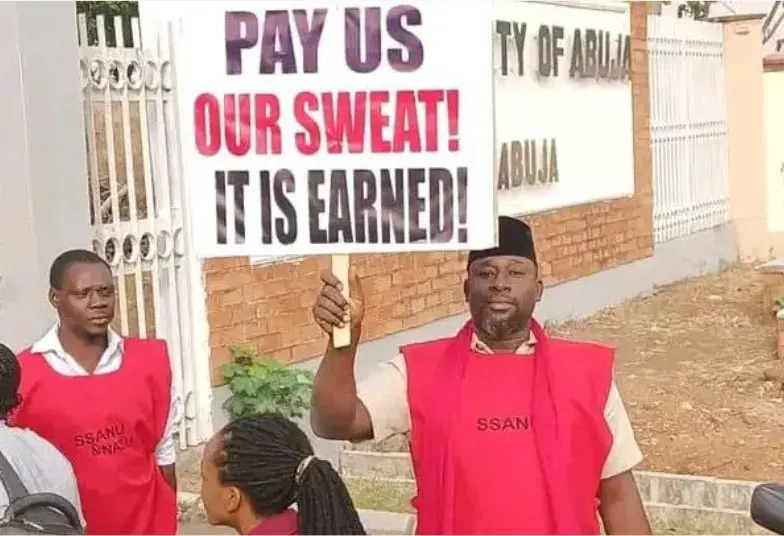
Following a joint emergency Congress, Adedeji Suara, the chairman of the SSANU at Federal University Lokoja, told reporters at the FUL campus in Felele, “We don’t like the way the Federal Government is treating us.” We went on strike in 2022, and for four months, we were not paid. Even though our sister union, ASUU, received 50% of their withholding pay, the Federal Government has not yet paid us salaries since that specific period.
The President has generously stated that our four-month salary ought to be paid, but the system users we are interacting with have raised a two-month memo.
“As of right moment, we have not received anything for the two months we are discussing. Our pay for the last four months ought to be paid. We will return to work as soon as they pay us.
To evaluate the strike, the University of Ilorin’s SSANU and NASU branches will meet jointly today.
Segun Alabi, the SSANU, UNILORIN chapter’s public relations officer, revealed this to The Punch in Ilorin, Kwara State, on Monday.
“We will decide on the strike at a congress at the University of Ilorin gate at 8 a.m. tomorrow (Tuesday),” Alabi stated.
The National Association of Nigerian Students’ president, Lucky Emonefe, stated that the organization did not endorse the strike and that closing schools would hinder students’ academic advancement.
I have argued that students were there to finish their education.
“We encourage senior and non-academic staff to take into account the interests of Nigerian students when taking such actions,” Emonefe stated.
“In the end, strikes may impact our academic schedule, resulting in longer timeframes for students to finish their education.”
He has urged the government to respond to the union’s demands and seek a solution as soon as possible.
“We support a cooperative solution, even though we do not support the government’s disregard for salary payments. The complaints of senior employees and non-academic personnel should be discussed by the government. Strikes should not be viewed as a solution; instead, solutions must be found via productive dialogue.
It’s crucial to remember that problems with unions like ASUU and NASU eventually affect Nigerian students rather than the government. Any delays in resolving these issues immediately impact us, as the students are the ones who suffer the most from these disruptions. As a result, we urge the government and labor unions to think about how their actions may affect students.
Students in Nigeria are impacted. Even though the problems will eventually be fixed and money will be paid, the students are the ones who suffer as a result of these interruptions. We urge the government and labor organizations to think about how their actions will affect the people who will actually be impacted.

